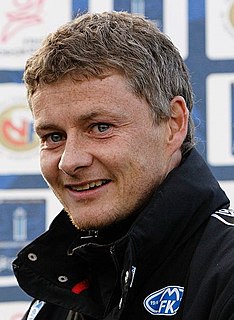A Quote by Judith Rascoe
Remember, when the writers refer to themselves as 'we' and to the reader as 'you,' this is two against one.
Related Quotes
I have a total responsibility to the reader. The reader has to trust me and never feel betrayed. There's a double standard between writers and readers. Readers can be unfaithful to writers anytime they like, but writers must never ever be unfaithful to the readers. And it's appropriate, because the writer is getting paid and the reader isn't.
Real writers-that is, capital W Writers-rarely make much money. Their biggest reward is the occasional reader's response.... Commentators-in-print voicing big fat opinions-you might call us small w writers-get considerably more feedback than Writers. The letters I personally find most flattering are not the very rare ones that speak well of my editorials, but the occasional reader who wants to know who writes them. I always happily assume the letter-writers is implying that the editorials are so good that I couldn't have written them myself.
The general's staff is a handpicked collection of killers, spies, geniuses, patriots, political operators and outright maniacs. There's a former head of British Special Forces, two Navy Seals, an Afghan Special Forces commando, a lawyer, two fighter pilots and at least two dozen combat veterans and counterinsurgency experts. They jokingly refer to themselves as Team America, taking the name from the South Park-esque sendup of military cluelessness, and they pride themselves on their can-do attitude and their disdain for authority.
As soon as I start to write I'm very aware, I'm trying to be aware that a reader just might well pick up this poem, a stranger. So when I'm writing - and I think that this is important for all writers - I'm trying to be a writer and a reader back and forth. I write two lines or three lines. I will immediately stop and turn into a reader instead of a writer, and I'll read those lines as if I had never seen them before and as if I had never written them.
After all everybody, that is, everybody who writes is interested in living inside themselves in order to tell what is inside themselves. That is why writers have to have two countries, the one where they belong and the one in which they live really. The second one is romantic, is is separate from themselves, it is not real but it is really there.
Writers must fortify themselves with pride and egotism as best they can. The process is analogous to using sandbags and loose timbers to protect a house against flood. Writers are vulnerable creatures like anyone else. For what do they have in reality? Not sandbags, not timbers. Just a flimsy reputation and a name.
We shall see that the mathematical treatment of the subject [of electricity] has been greatly developed by writers who express themselves in terms of the 'Two Fluids' theory. Their results, however, have been deduced entirely from data which can be proved by experiment, and which must therefore be true, whether we adopt the theory of two fluids or not. The experimental verification of the mathematical results therefore is no evidence for or against the peculiar doctrines of this theory.
There are two things I will always remember. First, a shot against Derby that hit the inside of the post but didn't go in, and we could only draw 2-2. And then the really big chance against Bayer Leverkusen, two minutes from the end of the Champions League semi-final, when I shot over the bar. That hurt a lot.






































